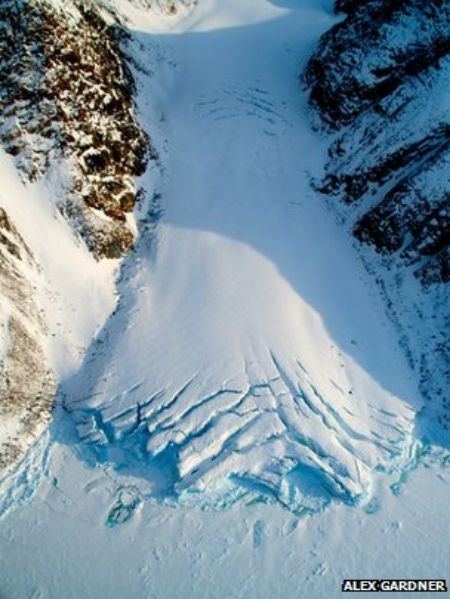
The glaciers and ice caps of the archipelago cover some 146,000 square km
Quote from:
http://www.bbc.co.uk/news/science-environment-21699115"The glaciers of the Canadian Arctic Archipelago will undergo a dramatic retreat this century if warming projections hold true.
A new study suggests the region's ice fields could lose perhaps as much as a fifth of their volume.
Such a melt would add 3.5cm to the height of the world's oceans. Only the ice of Greenland and Antarctica is expected to contribute more.
The assessment is reported in the Geophysical Research Letters journal.
"This is a very important part of the world where there has already been a lot of change," said lead author Jan Lenaerts from Utrecht University, Netherlands.
"And it is all the more important that we talk about it because it has been somewhat overshadowed by all the news of Greenland and Antarctica," he told BBC News.
"
